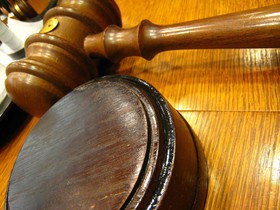The overall rationale behind the present study is the concerning rates of gambling relapse despite self-exclusion
A survey of individuals who breached self-exclusion in Sweden found a link between a relapse in harmful gaming behavior and the absence of online poker.
Researchers from Sweden’s Lund University surveyed 1,505 people who reported that they had gambled within the past year. Of those, 135 respondents (9% of the total) said that during the year, they had voluntarily self-excluded through Spelpaus — a nationwide, multi-operator self-exclusion service.
The survey revealed that of the 135 respondents who breached self-exclusion, 44 (33%) had played online poker. That compares to 253 of 1,359 respondents (19%) who had never self-excluded. Eleven respondents did not indicate whether or not they had self-excluded previously.
Based upon logistic regression, which is used to estimate the probability of an event occurring based on independent variables, the findings show online poker was “negatively associated with self-exclusion,” the Lund University researchers said.
“In logistic regression, self-exclusion was significantly associated with gambling problems, past-year online casino gambling, and [the] absence of online poker gambling,” they added.
To be clear, online poker was not among the most common gambling types reported during self-exclusion. Among those who breached self-exclusion, online casino gaming (82% of respondents), sports betting (47%), and lotteries (24%) were the most popular selections. Online poker wasn’t even ranked.
But the researchers said one trend that needs close scrutiny is the rate of breaching from self-exclusion on Spelpaus, which launched in 2019. The rate was 49% in May 2022, when the survey was conducted, compared to 38% from a similar survey conducted two years earlier, in May 2020.
“The overall rationale behind the present study is the concerning rates of gambling relapse despite self-exclusion,” the researchers said in the Background section of its report, Self-exclusion and breaching of self-exclusion from gambling: a repeated survey study on the development of a nationwide self-exclusion service.
“Although low absolute numbers hitherto have made such conclusions difficult, data have reported a possible association between the breaching of one’s self-exclusion and higher rates of treatment needs and psychological distress, and breaching typically occurs in the gambling types most commonly associated with treatment-requiring gambling disorder.”
The researchers said additional study is needed to better understand any link between the absence of online poker and breaching self-exclusion.
“Data describing the function and possible limitations of a nationwide self-exclusion service is needed in order to inform policymakers and other stakeholders in the area in order to optimize policy and preventive measures,” they said.
“More than three years into a new gambling market regulation, including the nationwide self-exclusion service, there is reason to provide a follow-up to previous figures describing the prevalence and breaching of voluntary self-exclusion in Swedish gamblers.”
Anders C. Håkansson and Nikoleta Komzia conducted the study. Håkansson is a professor of psychiatry at Lund University. Meanwhile, Komzia holds a Master of Science degree in psychology from Lund University and currently works as a part-time family counselor in nearby Copenhagen, Denmark, according to her LinkedIn profile.
Both Håkansson and Komzia are associated with the Department of Clinical Sciences at Lund University.




